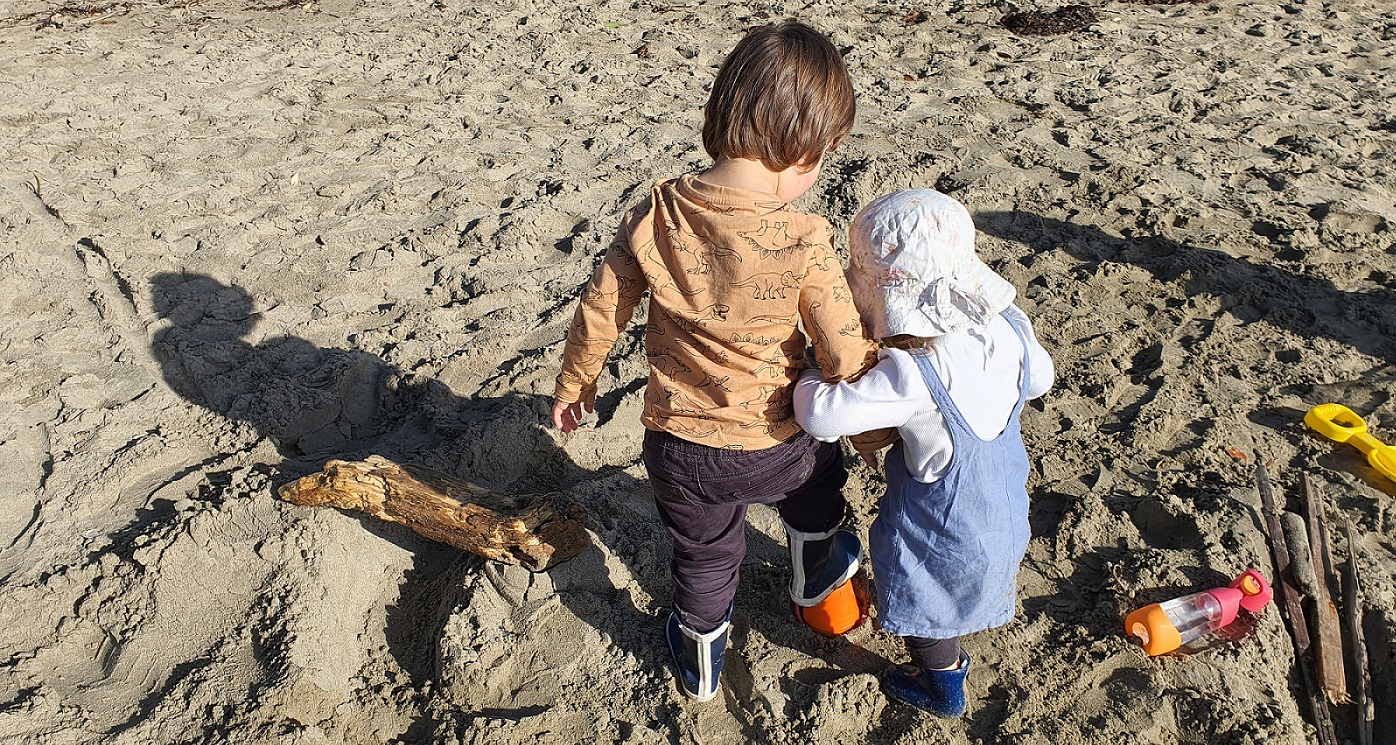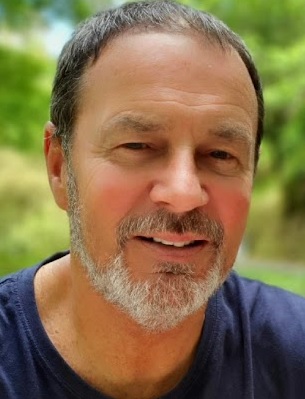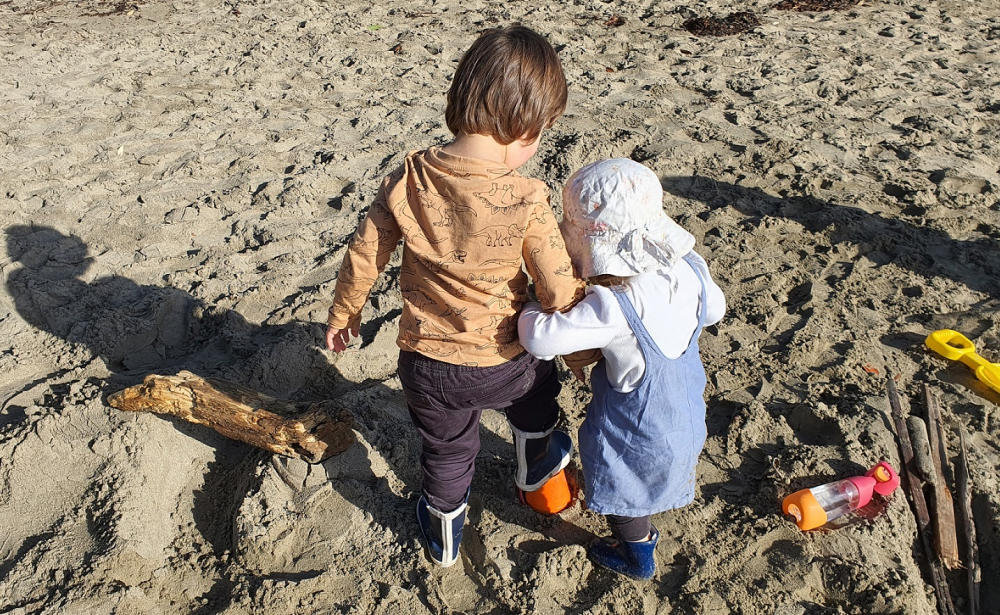
PHOTO: Freddy and Adelaide.
I feel moved this month to talk about tamariki and rangatahi. But, let me come back to that, after posing this question.
Try, for the next two minutes, to keep your mind exclusively focused on the present – what’s happening right now? It might be, while reading this, you’re enjoying a cup of coffee and feeling a bit of warm winter sun through the window.
Are you just absentmindedly drinking the coffee or are you sipping slowly and noticing the flavours and aroma?
If you’re anything like me, it’s not easy to just savour the moment and really focus on the here-and-now. Most of the time, especially if we’re busy people, we’re thinking about a problem to solve at work or the mother-in-law who you’d promised would receive a delivery of firewood but you haven’t made the time.
It’s a well understood fact that the more one can focus on the present, the happier we are. Yet, actually doing it for even a couple of minutes is a challenge for most people. We automatically tell ourselves we need to rush everything and be thinking ahead.
Now, just think, if we could all focus on the present most of the time, how much happier we’d all be? After all, the coffee tastes better and the sunshine is lovely on the skin. Then the problem at work or the firewood will still be there once we’ve finished, and we’d get to sleep a lot quicker if we didn’t go to bed thinking about work in the morning.
So hold that thought and let’s go back to children and young people.
Something else that’s fairly well understood is that nearly everything about us is shaped by our experiences as children, particularly in the early years. We are also seeing mounting evidence that all is not well for many young people in our communities.
While that’s obviously not universal across all kids, the proof is there in the rising numbers of children receiving counselling and support in our schools, plus the mounting issues we see reported in the news.
We further know that low socio-economic conditions are a powerful factor in a child’s development (see TV1 News on July 7: One in four preschool children developmentally delayed – study).
Nevertheless, while there are lots of happy kids in poor families, there are also plenty of unhappy kids in well-off households. But let’s face it, it’s easier to be happy if not living on struggle-street.
Many are worried about the state of discontent among young people, me included. That’s not just because of the heart-wrenching human suffering of our kids, but also because childhood unhappiness usually has a lot to do with shaping the behaviour of the adult. Note that adult counsellors inevitably ask people about their childhood.
It is surely self-evident that unhappiness at home and the same at school leads to a kid endlessly dreaming of a better future – after leaving school or home. But if that hard-wires kids to enjoy nothing much about their childhood, even the moment when they are with their best friends or having a birthday party, the orientation is inevitably towards a mythical tomorrow when something better might happen. But when they get to the future, it’s now the present and dreaming of a better tomorrow never goes away.
Is the issue of tamariki and rangatahi a defining one for any community? Yes, of course it is. Therefore, the solutions lie with all of us, not just within whānau and the institutions that teach and care for our kids.
A great quote is: “It takes a village to raise a child.” So why wouldn’t we all make it a personal responsibility to show our kids, by example, what it means to savour every family moment, to complain a little less and be a bit more positive about the future? If we listened to the kids more and engaged with them as humans, they could be helped to enjoy each and every moment in their lives, to live in the present more happily.
We could also say: “It takes a child to raise a village.” If it takes a whole village to raise a child, perhaps it starts by putting the child first.
Other reading:
Children are Taonga. Handle their Dreams with Aroha
Growing Up in New Zealand growingup.co.nz
 You can contact Fraser here.
You can contact Fraser here.
Fraser Carson is the founding partner of Wellington-based Flightdec.com. Flightdec’s kaupapa is to challenge the status quo of the internet to give access to more reliable and valuable citizen generated content, and to improve connectivity and collaboration.
Flightdec websites include: KnowThis.nz, Issues.co.nz and Inhub.org.nz.
OTHER POSTS
LATEST POSTS
- Money for the expressway – for whom does the bell toll?
- Ōtaki-Māori Racing Club ‘focused on mana and mauri’
- If you’re not there you won’t know what’s going on
- Fear breeding fear, fear and more fear
- Poor official communications fuel misinformation
- Cultural infrastructure could be our saviour
- Four-storey blocks coming as developments fast-tracked
- The world’s therapist offers little hope for global ills
- Modern conservatism the quiet killer
- However bad it might get, keep smiling
- AI is coming, ready or not
- Arise King Brown of the Kingdom of Auckland
- Rebuilding should draw on mātauranga
- Brown hits the fan as water levels rise
- When small stuff becomes really big stuff
- Unfettered lies and misinformation threaten us all
- Misinformation, crime and political shenanigans
- A vote for me is a vote for nothing
- Enduring the tough life of homelessness
- A time to reflect on local politics

